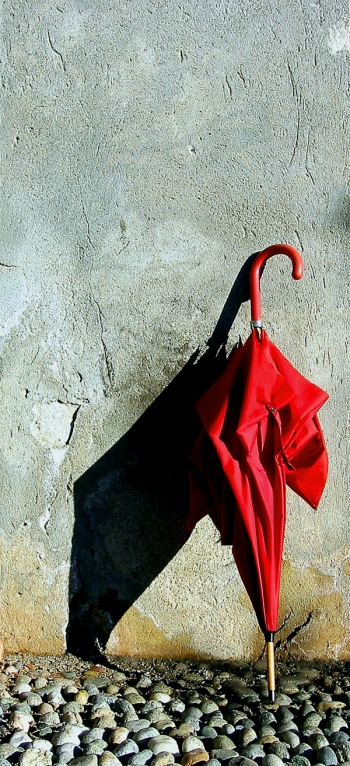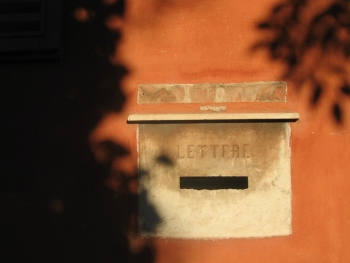
Blog (423)
My hope is to offer encouragement to writers as well as those who simply love to read. You will find eclectic snippets here—news of projects I’m working on, comments regarding books I enjoy, favorite authors, quotes, and reflections regarding my own experiences. I especially like to write about my dreams—those parables in the night seasons. Symbols and metaphors delight and intrigue me. You will find them here.
She is kind. Glitter seems to trail her path. My colleague. She is blonde, fair, with Prussian-blue eyes. She wears silver necklaces in the shape of seahorses. Her hair flows in honey-colored waves down her back. Her smile could light the darkest room. And the other day she gave me a gift that has serendipitously placed me in new geography, a territory bursting with color--like Dorothy walking into Oz. She came into my office and placed a turquoise gift bag in front of me. The next day I was off to one of my medical treatments. She knew it would be a challenging day. Each gift was wrapped in bright pink tissue paper studded with miniature white stars. I found a tasty energy bar, then a light-blue journal imprinted with the phrase "Find Peace." The third gift included a carrying case of thirty-six multi-colored gel pens. "I thought these colors would help brighten your days. I love gel pens and coloring things." She smiled then, her face lit up like a sunrise.
I placed the gel pens in my office and didn't use them right away. There was no question that the journal would be used. I write something every day, and I fill up journals quickly. I'd already eaten the energy bar. But the pens? They were something I'd never buy for myself. But recently I'd purchased a sketch book. I didn't draw. I don't know why I bought it, yet I found a box of sketch pencils and taken them with the pad up to the cash register. The next day, I'd sharpened a pencil and drew two pictures. The drawings were surely the work of an amateur, but I liked them, and when I drew, I felt my relationship deepening with the page, a feeling close to my experience when I write. There was something missing from my drawings, though. Color.
I've been thinking of my late father this week, memories surfacing due to this "cool spell" that we've had, a break in the pattern of hot Carolina days. I grew up in Texas, and every now and again, the hot humidity of Dallas summer weather would break. And my dad would say, "Prissy girl, we're gonna get a cool spell, some rain. Lets go sit on the back porch and soak it up." Then we'd go sit under a covered back patio and listen to the drum of rainfall on the roof. My dad was like that, a soft-spoken, southern gentleman who treated me, his youngest daughter, with quiet tenderness. We'd wade in a lake with no words between us, my hand in his, or take drives to an airport landing strip where we watched airplanes land and take off. I'd place my hands over my ears when the planes revved up for take off, and my dad would turn to me and shout over the noise, "Aren't they something, Prissy girl?" And I'd vigorously nod my head up and down, basking in his presence and the mystery of the jets.
We laid together on the bed, each of us holding one side of a book up above our faces. Five-year-old Lilly and I love to read. And I especially like listening to her read out loud to me. Lilly's been reading for about a year now, and when she reads, her voice is a wind chime--melodic and clear--her narrative expressive--her knowledge of vocabulary extensive for one so young.
That day we rested, and Lilly read over ten library books to me. I basked in her child's voice reverberating in the sunny room, and the delicate scent of Johnson's baby shampoo, her head next to mine. And every now and then Lilly paused, turned toward me, her blue eyes the color of ocean calm, and said, "Oh I just love being with you, Minou (pronounced Me-Noo), my grandmotherly title. And, of course, the emotion felt extravagantly mutual, my heart melted to hear her sentiments. Delight cubed.
Ripcord won best in show at the Beverly Hills Dog Championship last weekend, and I don't think it was because he was the most beautiful dog. Of course, he was in fine form, his coat shiny, no ounce of fat and surely a well-behaved Doberman. I think, honestly, what caused Ripcord to stand out from the other breeds was the way he gave full attention to his owner. There is a point in the dog's presentation when after he and the trainer have loped down the red carpet before the judge, that the handler brings the animal to a full stop. Each competitor must affix its eyes on the owner. The dog is rapt--tail up, feet planted firmly on the ground with no movement, ears at attention. The dog is not distracted by anything--he only has eyes for his trainer. And even with all the hoopla of his win, Ripcord's eyes rarely veered from his handler. There was one moment after the victory when Ripcord placed his long legs on the owner's shoulders and licked her face. He was allowed this affection as they'd pulled off a feat no other duo was able to perform as well-- they'd stayed in tune.
When I walk, I often listen to Pandora. If I hear a song I like, I'll pause and look at the title. This week I happened to look down and read on the phone screen, I Am Always Right. I thought to myself, "That's not the title I'd expect from such an evocative instrumental piece." Then I looked again and I'd missed a word. The title of the song was, I Am Always Right Here. I laughed to myself and thought, "Sometimes that kind of arrogant attitude is what I project toward God--He's always right and I better keep it together to stay on His good side." No mindset could be more toxic--that simple word "here" making all the difference. He is "I AM." Here and present. Always.
After my walk, I pondered what God might be saying to me, getting my attention through that mistaken song title, surely, a bit of His kind humor. I got out my journal and penned a letter that I think He could have written to me and slipped into the mail slot. Perhaps this missive may encourage you as well. More and more, I'm convinced that our perception of God is the most important mindset we will ever develop. He is good, and He withholds nothing good from us. When I unseal the envelope this is what I read:




